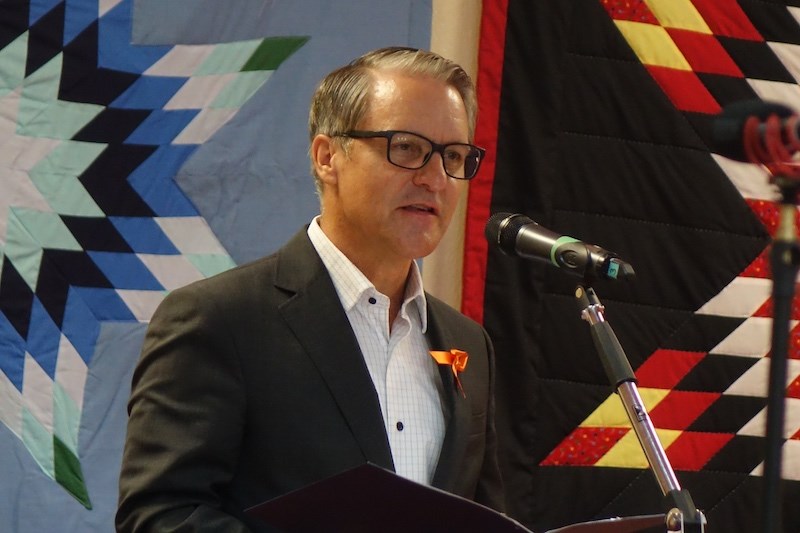In May, consumer inflation rose to 8.7 per cent in Manitoba, the highest rate in nearly 40 years. At this rate, the average household would spend an estimated $4,900 more on goods and services.
Manitobans are struggling with rising costs these past few months. Everything has gotten more expensive – groceries, household goods, furniture, loans and mortgages. But nowhere is the pressure more noticeable than at the fuel pump.
One thing I hear frequently is that the government should be providing relief at the pump by decreasing gas taxes. It’s an important topic for discussion, but there’s a lot that people don’t realize is going on when it comes to provincial and federal tax on gas.
First let’s talk about provincial taxes on fuel. The Manitoba government does apply an excise tax on fuel at 14 cents per litre. This is a fixed price per litre, it’s not price sensitive. That means the government of Manitoba does not make additional fuel tax revenue from high prices at the pump. The excise tax is the only provincial tax on gas – there is no PST applied and no other form of provincial tax.
Then there’s the story of federal taxes on fuel, which is more like a three-part saga:
First, the feds have their own excise tax on fuel at 10 cents per litre.
Second, the feds then apply the carbon tax, which is now 11.1 cents per litre. The federal carbon tax has been increasing for five years now, and while their original story to Canadians was that the carbon tax would top out at this current level of $50 per tonne, last August they announced that the carbon tax will actually rise to $170 per tonne by 2030, or 38 cents per litre!
And then there’s the third federal charge on fuel: the Goods & Services Tax. The federal government applies their 5 per cent GST to fuel, which is price-sensitive – meaning that the higher the price of gas, the more revenue the federal government makes. To illustrate, in January 2021, the federal government pulled in just over $6 million each month in GST on fuel in Manitoba alone; today, that number is $11.7 million per month – or $140 million in a single year.
Our provincial government has been hard at work making life more affordable for Manitobans who need financial relief. Budget 2022 increased the rebate on your Education Property Tax bill – a historic tax relief measure for 455,000 homeowners. And the cheque is literally in the mail, arriving before your tax bill is due. We’ve also created a new Residential Renters Tax Credit to give all apartment dwellers an annual $525 rebate, and that credit was expanded to 40,000 additional renters who were previously ineligible. On top of these measures, the provincial government has increased shelter benefits for low-income Manitobans by investing $18 million for both EIA and non-EIA rent assist indexation. These actions help families now.
The federal government continues to take a 1-2-3 approach to taxing your fuel. 1. It applies a 10 cent per litre federal fuel tax; 2. it adds in the carbon tax at 11.1 cents per litre; and 3. it applies GST on the total price.
Fuel prices have never been higher. And it’s high time for the federal government to come clean with Manitobans about the money that Ottawa is making due to the sharp increase in the price of gas. It’s time for the federal government to get real and tell citizens how they plan to help make life more affordable.
Cameron Friesen is the MLA for Morden-Winkler.



